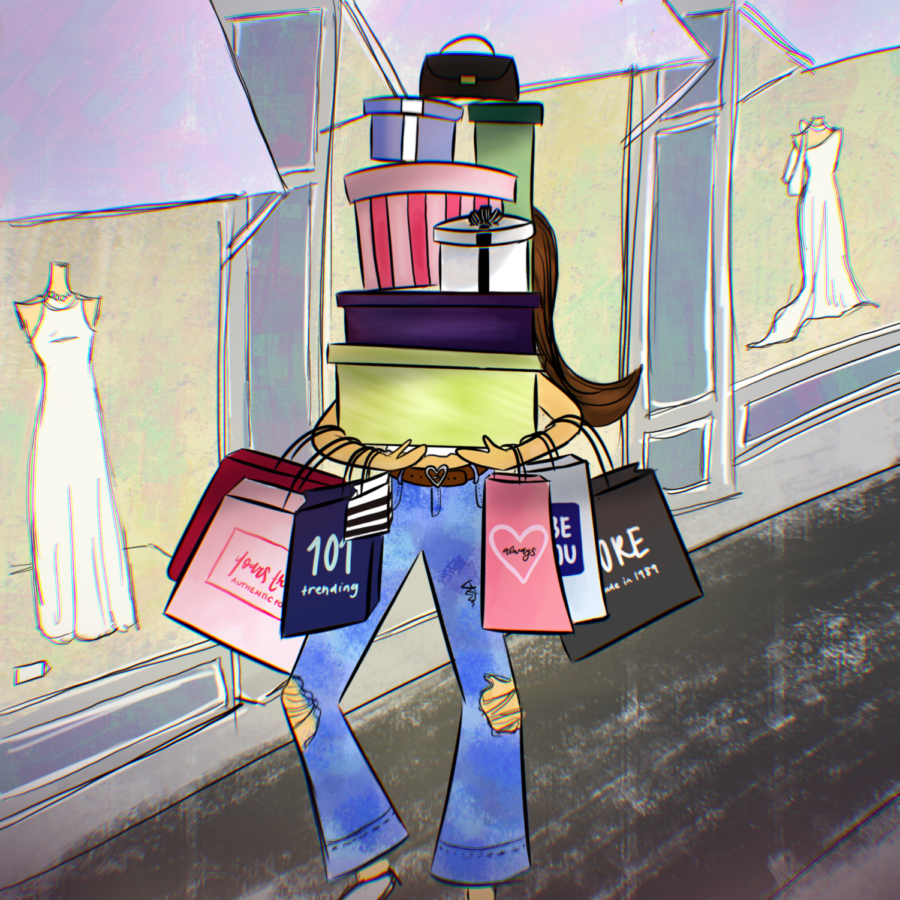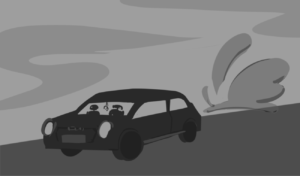Subject to Change: Overconsumption is how we’re slowly murdering our home
Shopping for more than you need harms the planet, and ultimately this overconsumption becomes unsatisfying as well.
February 1, 2023
Do you have a drawer filled with things that you never use? Maybe you have a section of your closet with clothes you wore once and will possibly never wear again. Perhaps you’re looking for the “next big thing” in technology despite your table filled with gadgets. If any of these sound familiar to you, chances are you’re stuck in the consumerist culture.
Aren’t we all, to be honest? We’re pressured into buying anything and everything that’s currently “trendy.” Overconsumption has close ties with privilege and it tends to be an outlet for one’s display of wealth. With San Ramon being on the list of the top 25 richest cities in the United States, almost all of us are exposed to this lavish lifestyle. Among wealthy communities such as ours, it’s highly common to spend thousands on getting lavish items – simply because we can afford to do so. As teenagers, our parents buy us sports cars, designer bags, and luxury clothing. It’s understandable that parents who earn want to provide for their children – but this materialistic mindset is at the cost of our environment.
This unhealthy behavior is not a trend, it’s a mindset that needs to be broken. It can’t be broken within a day or a year – it’s something that takes time and constraints. Here’s something that we can put our minds to – distinguishing our wants versus our needs.
We can’t control what’s advertised to us – whether online or physical – we’re suffocated with industries’ latest technologies and how to get them. With websites tracking our internet activity, we’re constantly bombarded with advertisements specifically directed at us. Without question, our urge to keep up with the latest trends takes over, causing us to indulge in this consumerist mindset. This is detrimental to both our personal and environmental well-being.
At the rate we’re exploiting our environment, we’ll need 1.8 earth to regenerate our resources. By simply lessening our expenditure on unessential products, we can positively impact our environment. In an interview conducted by The Guardian, Canadian best-selling author and journalist J.B. MacKinnon expressed, “When people buy less stuff, you get immediate drops in emissions, resource consumption, and pollution, unlike anything we’ve achieved with green technology.”
The power of individual action can light the fire of collective action on contrasting consumerism for the better of our home planet. Here are a few things you can do to make humanity’s home a better place for future generations.
1. Figure out if you “want it” or “NEED it”.
Whether it’s the designer purse everyone’s raving about or the cute boots that all the kids in school are wearing – it’s really easy to buy into trends, especially if everyone else is too. Figuring out if the item is a necessity or a luxury is the method to block overconsumption as a problem. If every person on the planet only purchased necessities, wouldn’t our environment be so much better?
2. Take your stand.
Spreading the word and expressing your stand on consumerism can help reduce its impacts. Those with the power to influence can turn to their social platforms and their friends to express their way of thinking about this issue. Spreading awareness and creating urgency to move forward can be the next big step.
3. Apply logic to advertisements.
Many of us are the victims of convincing advertisements. Picking apart the intention of advertisements and why they’re targeted at us are essential to being self-aware. Before you buy another product through an advertisement, try researching its quality and usefulness. Is this object really worth harming the environment for?
4. Stick with the classics, not the trends.
Take clothes for example, in the midst of low-rise jeans and crop tops, staple items of the closet remain a part of fashion throughout any time. Investing one time in quality products and trusted brands over fast fashion can save money and the environment.
In an interview conducted on fashion, French teacher Madame Imin Moriya explains her way to beating fast fashion, “If there’s a shoe that’s really cool or trendy, I won’t buy it until the trend has gone. It’s like do I really want those or do I just want them because other people have them?”
This applies to other areas of the commercial world too. Exploring the classics over newer products can help us stop indulging in consumerism.
With anything, talking about taking charge and making change is easier said than done. It will take years of awareness and education to bring change. Collectively deciding to stop this toxic cycle is how we put an end to consumerism. It doesn’t matter whether or not you have the money to buy the “next big thing” because, in the end, even money can’t buy us planet B.






